An Interview on Community Management with Kelly Lux
In 2013, I was preparing for a DNN webinar on online community management. The #CMGRclass at Syracuse University appeared a number of times in my searches. “Neat!” I thought, “a university course on community management.” Kelly Lux is one of the creators of #CMGRclass. I asked her about doing an interview and was pleased when she said "Yes."
Q: Tell us about yourself, Kelly?
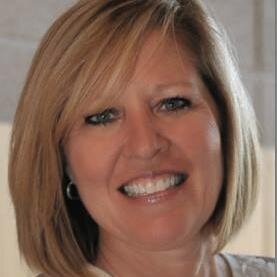
Photo source: Kelly Lux on
Twitter (@KellyLux).
A: I'm currently the Director of Social Media at the School of Information Studies (iSchool) at Syracuse University, where I have worked since 2007. In 2010, I helped SU start their social media presence and we were ranked the #2 College on Twitter in early 2011. I have a Masters degree in education, and an undergrad in psychology. I've worked mainly in government and education my entire life, but I did work for Anheuser-Busch (Budweiser) prior to coming to SU. I have a daughter who is an SU student, two small dogs and a husband - not necessarily in that order. I'm into yoga and I volunteer at a local dog rescue.
Social Media and Online Community Management Course: Syracuse University
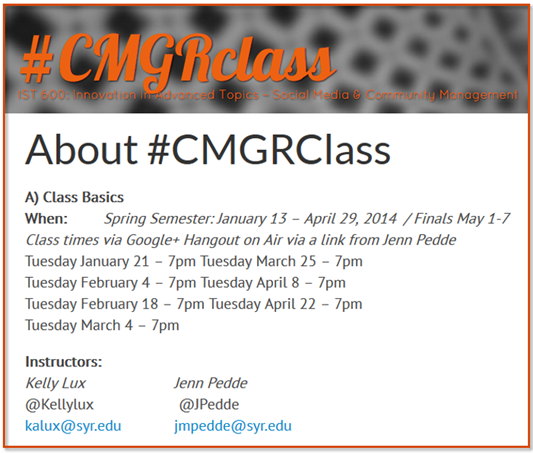
Q: Tell us about #CMGRclass?
A: #CMGRclass, officially Social Media and Online Community Management, is the brainchild of me and Jenn Pedde. Jenn and I are now in our fourth year of hosting #CMGRchat, a weekly Twitter chat. We basically took the content from the chat and based our syllabus around those topics. We've come to know many, many community managers over the past several years, and we leverage those relationships for our class: hosting Google Hangouts for our students with panels of professional Community Managers and Social Media Managers. Last semester we had guests from Google, JetBlue, LiveFyre, Klout and Moz, among others.
Our class is offered online only, and part of the reason for that is that Jenn is based in New York and I'm in Syracuse. But beyond that, since Online Community Management is for the most part an online job, we give the students a taste of what it's like to work in this field. We have a Google+ community that each student is required to moderate for a week during the semester; students blog on
cmgrclass.syr.edu, we have a Twitter account and hashtag where students are expected to participate and we hold classes and office hours via Google Hangout. Most of our students say it's the best online class experience they've ever had.
Q: Are you aware of related courses at other colleges or universities?
A: As far as we know, we are the only Community Manager class offered for college credit. We were definitely the first.
Q: Who are the typical students of the class and what are they looking to get out of it?
A: We have a variety of students. We started out with strictly grad students, then offered it to both undergrad and grad last semester, and now we're back to all grad. Some of our students are very interested in the field of community management and others are just learning about the field for the first time. The students who do well in our class are very motivated and organized, have great communication skills and are comfortable working and engaging online.
Q: Can you share some jobs that your students have gone on to attain?
A: We've had students in our class go on to work in community and/or social media roles at General Assembly, Chobani and Gawker. We're just starting our third semester, so many of the students are still in school.
Community Management Experts
Q: I see in the #CMGRclass syllabus that you link to a number of community management bloggers and experts. Are there a few you’d like to call out?
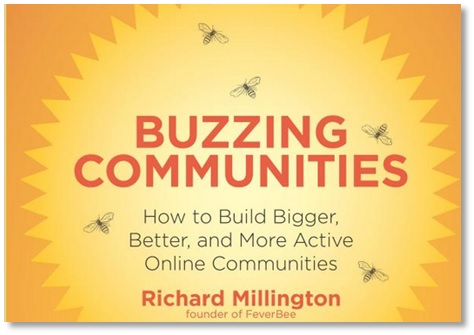
A: Sure, we really have two experts that we rely on continuously, and those are the authors of the two texts we use in our class. Rich Millington's Buzzing Communities is really the bible of Community Management as far as we're concerned, everything from research, to staring a new community, to scaling is covered in there -- with plenty of foundational elements that allow students to see not just the how, but the why of what it takes to build and maintain online communities.
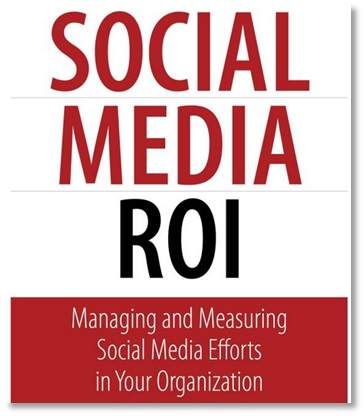
And
Olivier Blanchard, author of Social Media ROI, really takes social media management to another level. Again, he takes you through the processes that should take place prior to implementing a social program, and shows you how to integrate social into your business. He goes into a lot of detail about what and how to measure results in social media, always tied to business goals. We're not just teaching students how to manage social media and online communities in this class, we're teaching them how to look at those as elements of a bigger picture -- the ways social and community can drive results for an organization.
Q: If a new student aspires to be a community manager, what would you have her do, besides attend your class?
“We always encourage our students and others to get offline and meet people face to face.”
A: One thing would be to participate in #CMGRchat on Twitter. Every week we have a gathering of some of the best in the business, and they are sharing what they've learned and what they're doing. Beyond that, it's a great networking opportunity; community people tend to want to help others learn about the field.
There is so much great information out there on sites like
thecommunitymanager.com, communityroundtable.com, and others - that learning can be an ongoing process. We always encourage our students and others to get offline and meet people face to face. Events like CM Meetup in New York facilitate that. If you're not in a big city, find a tech meet up near you, and talk to people about what they're doing Many startups look for community managers early on, and that's a great way to get a baptism by fire into the world of community management.
The Role of the Community Manager
Q: Between 2010 and 2014, how has the role of the community manager changed?

Photo source: Rob Enslin on
flickr.
A: We're still trying to nail down Community Management as one set of skills and responsibilities, but it really is different in every organization. One thing we focus early in our class is “What is a Community Manager?” And “What is a Community Manager not?”
There are definitely still some blurred lines, mostly because organizations aren't fully knowledgeable about what Community Management is and they put the title on it, when it's really more Social Media Marketing. What has changed over the past few years is that more organizations are starting to decipher between the two and figure out what they really want/need.
Community Management has been around since the beginning off the web, it's just more visible now because of social media.
Q: What sorts of personality types are NOT well suited to community management?
A: That's a good question. I've seen very, very social people who are good online and off; but others who are great online but not great in person. That can be an issue sometimes, especially because Community Managers are often hosting events and reaching out to their community one on one.
 "If you don't like people, stay out of Community Management."
"If you don't like people, stay out of Community Management."
 "If you want a lot of time to yourself, Community Management isn't for you."
"If you want a lot of time to yourself, Community Management isn't for you."
 "If you have trouble making quick decisions, you probably won't do well in Community Management."
"If you have trouble making quick decisions, you probably won't do well in Community Management."
 "If you need to have a daily routine, you would not do well in Community Management."
"If you need to have a daily routine, you would not do well in Community Management."
If you have a personality that needs a daily routine, you would not do well in Community Management. If you have trouble making quick decisions, you probably won't do well in Community Management. If you don't like people, stay out of Community Management. If you want a lot of time to yourself, and like to not be bothered with being connected all the time, Community Management probably isn't for you.
Community Management Predictions
Q: Care to share some 2014 predictions on community management?
A:
Creating engaging content for your community is going to continue to be a big focus. Community members, like everyone else, only have so much time to engage within your community, and they need to have a reason to keep coming back. Nurturing relationships, and continuing to empower community members in a variety of ways will also help keep them engaged.
'Community' is a bit of a buzzword right now. Whether or not those people using the term are truly building community is a bit of a question, but the word itself will continue to increase in popularity as brands try to figure out where and how community fits within their business models.
THANKS for participating in this Q&A, Kelly. I learned a lot.
A Playbook for Community Managers
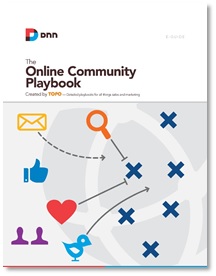
Community managers: did you know that DNN has an
online community solution? It's called Evoq Social. Register for a free trial or read our playbook on how to start your own online community.